Elves are one of the most intriguing aspects of J.R.R. Tolkien's The Lord of the Rings novels, bringing an aura of mysticism and enchantment to Middle-earth which, during the period Tolkien focuses on, is engulfed in war and division. Known for their preservation of knowledge, jewelry, singing, and craftsmanship, they are one of the oldest races in Tolkien's fantasy world and therefore, their wisdom is of utmost importance.
In Peter Jackson's films, elves are depicted as aloof isolationists who are unconcerned with the state of Middle-earth, and while lovely to look at, are cold and calculating overlords. The disparities between the two versions create a lot of complications for the narrative of the films, and present elves as a confounding race.
10 THEIR SEVERE PERSONALITIES
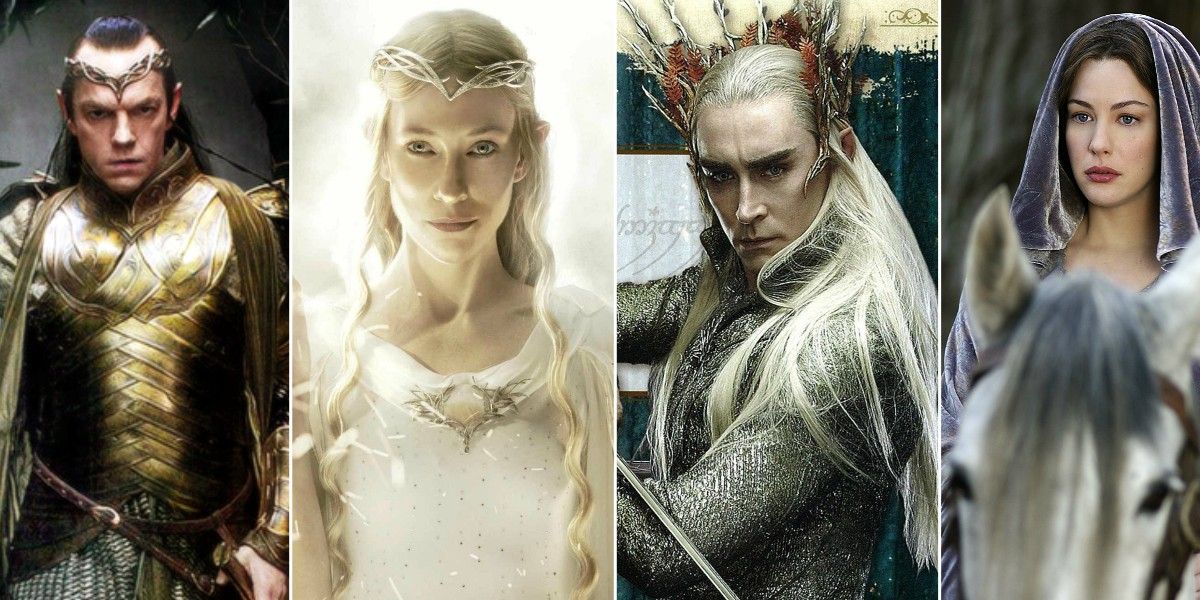
In Peter Jackson's films, most of the elves of Middle-earth are reserved and detached. Only Galadriel approaches the level of "compassion and kindness" that Tolkien discusses when referring to the elves, and even she has her moments of darkness.
Lord Elrond, described as "kinder than summer" in The Hobbit is severe, haughty, and condescending. True, his character suffered many tragedies, and his cynicism with the race of men has become palpable, but that's what made his enduring kindness in Tolkien's books all the more admirable.
9 THEIR SPEED
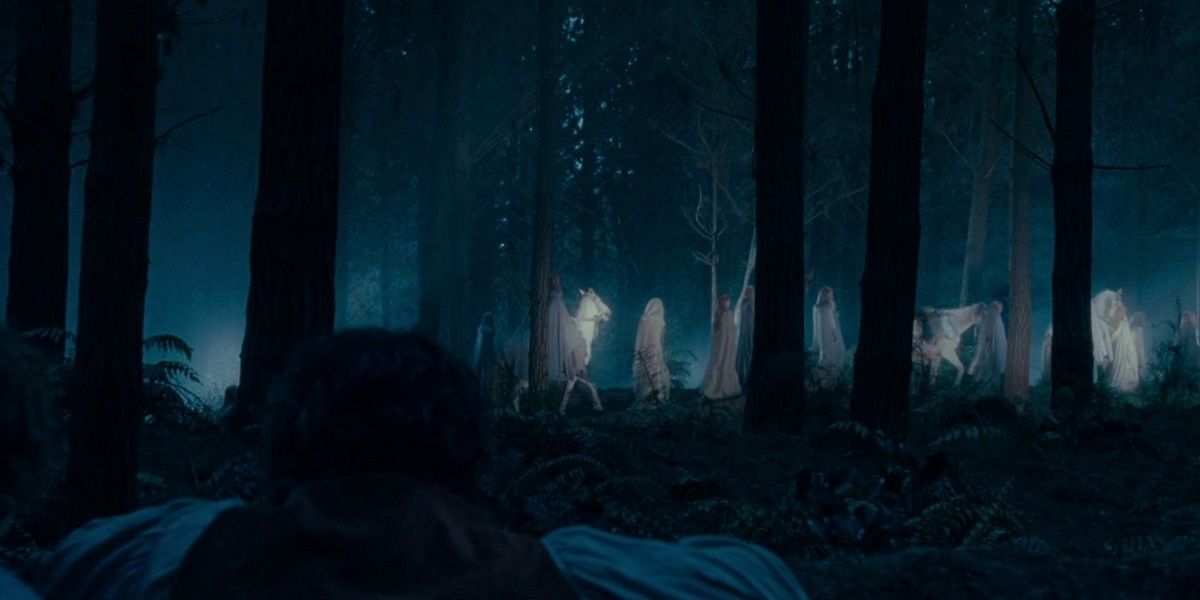
Elves may be "light of foot," but in a series of films that goes to great lengths to show the painstaking process of the Fellowship working to get the One Ring to Mount Doom, it would make sense to show a little more of their onerous journeys as they made their way around Middle-earth.
In the Battle of the Hornburg, the elven armies of Lothlórien arrive without explanation before the orc armies, and shortly before the Battle at the Black Gates, Lord Elrond arrives to council Aragorn seemingly out of thin air... and doesn't stay to assist in the fight.
8 THEY HAD OTHER BATTLES TO FIGHT
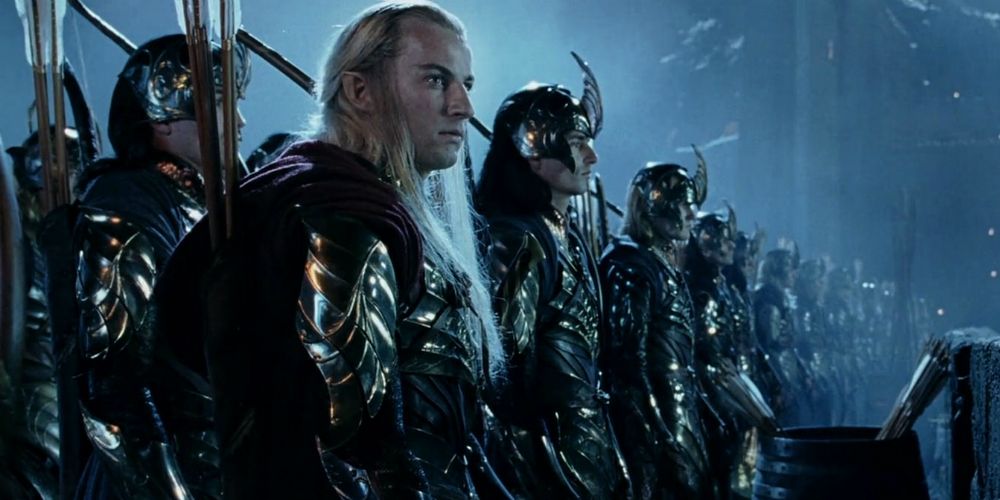
In the Lord of the Rings trilogy, Peter Jackson makes it seem as though the elves didn't care to help men, dwarves, and halflings in the defense of Middle-earth because they despise them, when in actuality the elves have their own battles to fight against Sauron.
Armies from Dol Guldur swept over Lothlórien and Mirkwood, and the elves there had to rally their forces against them, as well as tear down the fortress at Amon-Lanc. They often were too busy with their own defenses to spare any men to help the others.
7 BOTTOMLESS ARROWS
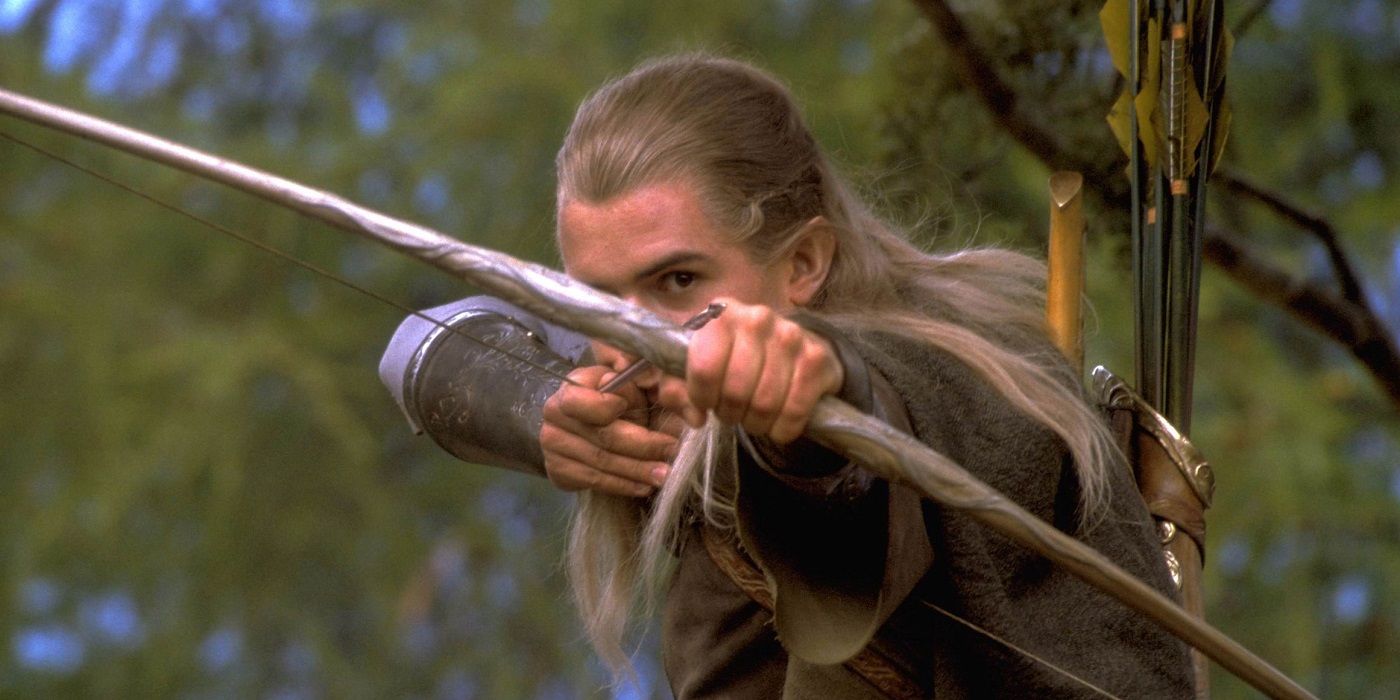
When the elves do decide to fight the forces of Sauron, they bring with them quivers of magical property. Legolas never seems to run out of arrows, because whenever her fires a shot another magically appears.
This isn't explained in the Lord of the Rings films, but fans of Tolkien's novels liken it to "elven technology." When Legolas shoots an arrow, it's as though another arrow is teleported from Valinor, making his quiver appear bottomless.
6 THEIR LACK OF PRECISION IN BATTLE
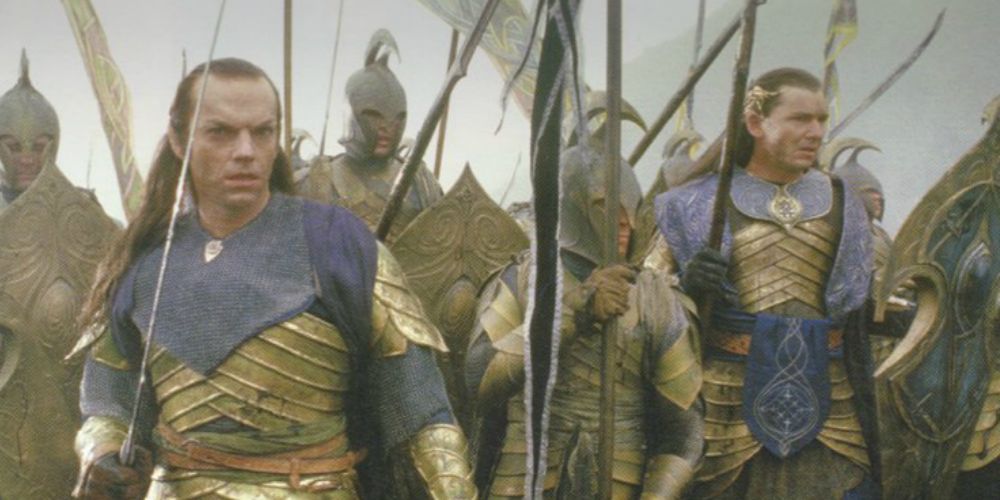
Timing, framing, and coordination all go into effectively pulling off cinematic stunts, and the multitudes of extras needed for the battle sequences in Lord of the Rings made it more difficult to ensure their efficacy.
Still, there are numerous occasions, such as the opening of the battle with Sauron, or during the Battle of Helm's Deep, when elves are shown to lack any precision in battle — they swing their glaives only to completely miss their targets. The scenes should be edited better so that the elves don't come off as clumsy, which directly contradicts their graceful and efficient comportment.
5 LEGOLAS' ABILITY TO WALK ON SNOW
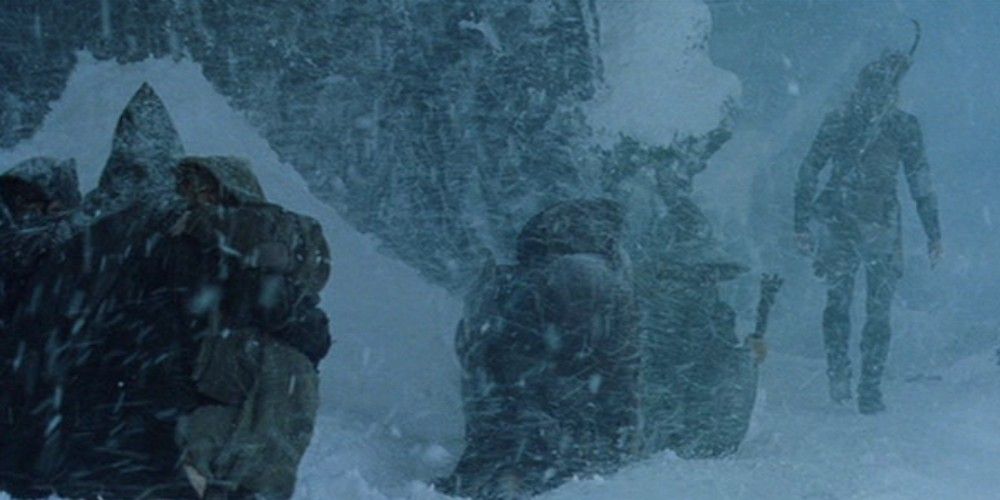
In Lord of the Rings: The Fellowship of the Ring, while the rest of the Fellowship are treading waist-deep through the snow at the Caradhras pass, Legolas walks on top of it without any difficulty.
His feat is never mentioned in the film, but Tolkien's books explain that he's able to accomplish the task because Elves are light of foot. A throwaway line in the film might have made the moment seem less bizarre, especially since at other moments, Aragorn highlighted his heightened vision and hearing.
4 THEIR REASON FOR NOT AIDING MIDDLE-EARTH
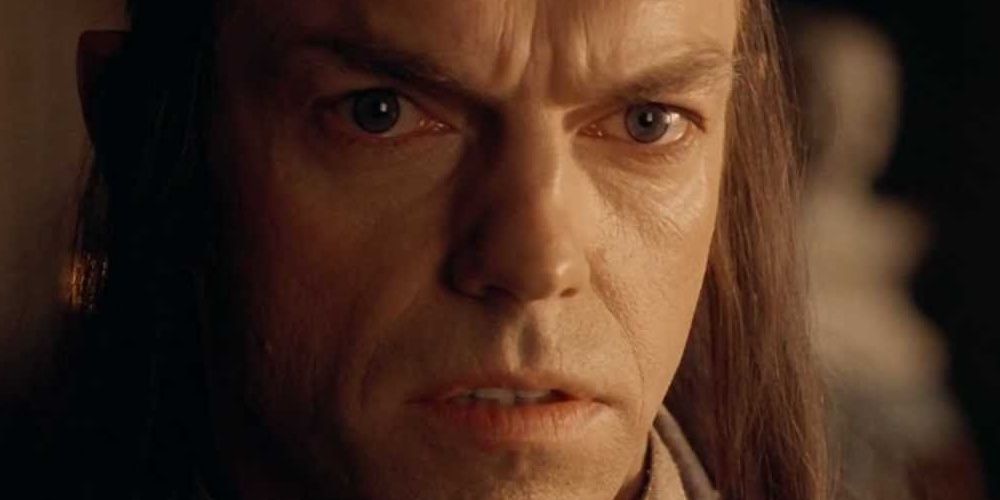
A large theme of Tolkien's books was that the race of elves were leaving Middle-earth to the races of men, dwarves, halflings and others to bear their own burdens. Unlike in ages past, when elves had kept the forces of darkness at bay, they were not going to be the wise protectors anymore.
This doesn't come across the same way in Peter Jackson's trilogy, as the elves seem to sort of throw their hands up at the state of Middle-earth and leave it out of disgust and despair.
3 HOLDING GRUDGES
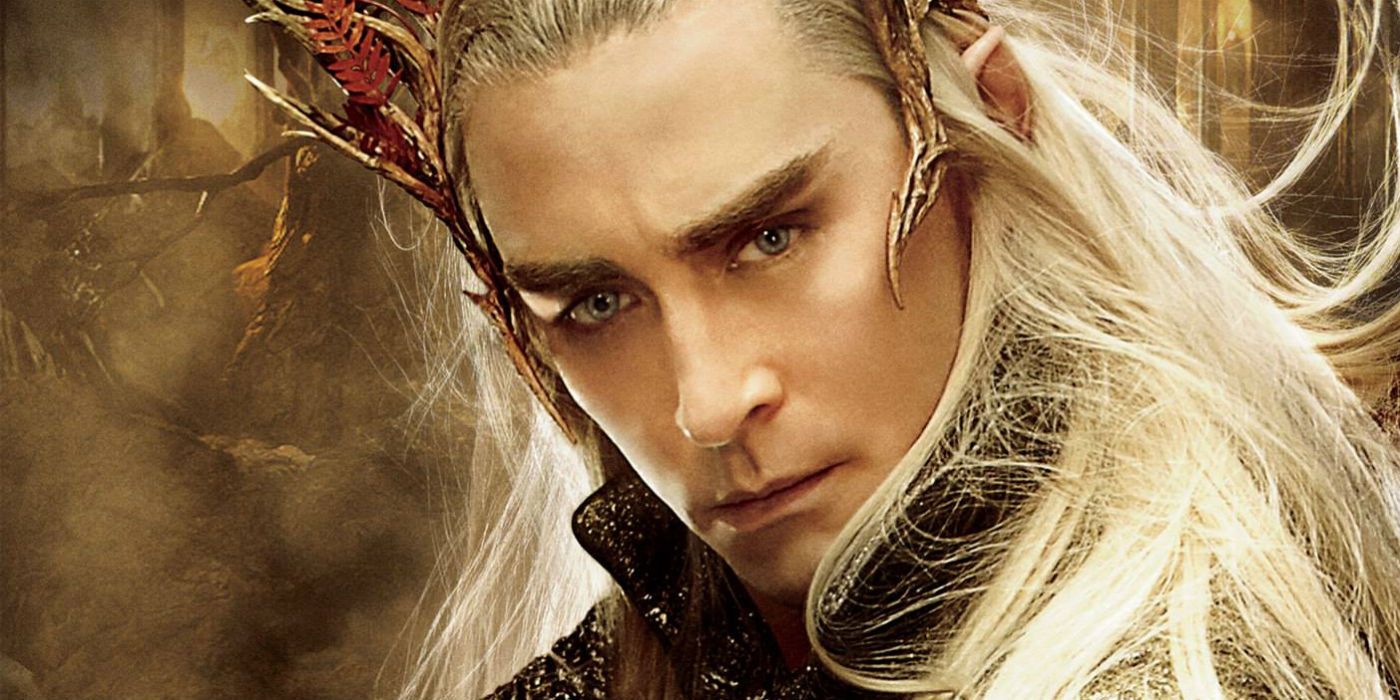
In the Lord of the Rings and Hobbit films, elves are notable for holding grudges. Lord Elrond and King Thranduil both hold grudges against the race of men and dwarves — who built Woodland Realm's great halls! — despite the fact that this personality trait is in direct opposition to Tolkien's novels.
In Tolkien's works, elves are meant to place the well-being of others before themselves. They are meant to be kind, compassionate, and not to hold grudges against others because that is a sign of avarice and greed, which are traits found in men and dwarves.
2 THEIR DISDAIN FOR OTHER RACES
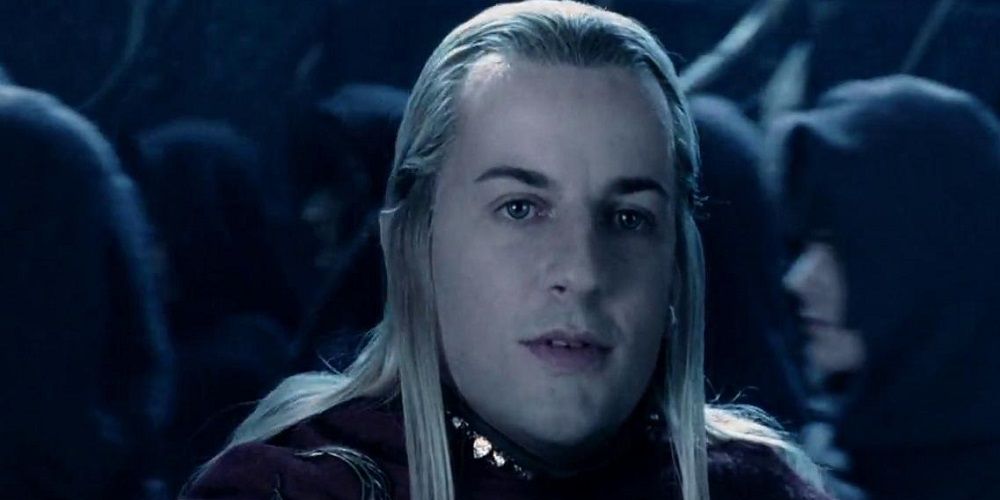
Throughout the Lord of the Rings films, elves are depicted as having quite the superiority complex. While they're known for their craftsmanship, hospitality, and beauty, their inherent ethereal nature shouldn't make them better than dwarves, men, or halflings.
While it's true that elves were the Firstborn and created by Ilúvatar, and that may contribute to viewing the dwarves as lesser beings because they weren't directly created by him, they would never tell a dwarf that to their face.
1 THEIR IMMORTALITY
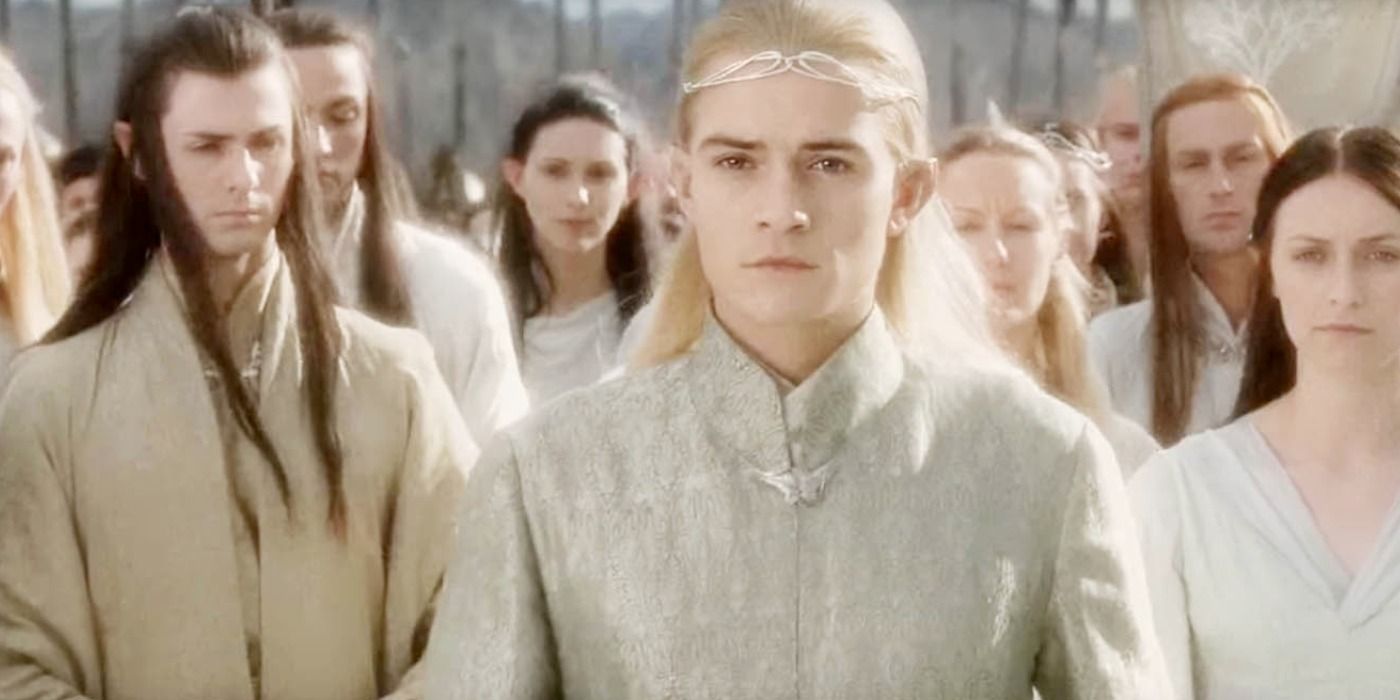
Elves live forever, but that doesn't mean they can't be killed. If they weren't slain in battle or brought down by some disease, they would wait until it was their time to sail into the Undying Lands. With that in mind, why is it that Middle-earth isn't overpopulated with elves?
Elves should constitute the largest cultural group, even with the prominent life span of dwarves and Númenóreans. Given that most elves take on a partner and mate for life, elven couples should have been able to sire dozens of generations of offspring.
from ScreenRant - Feed https://ift.tt/31OH513

0 Comments